Robert F Kennedy Jr suspends campaign in major shake up to Trump-Kamala Harris race
Robert F Kennedy Jr made a highly-anticipated announcement over the 2024 US presidential election in a major shake up to the race between Donald Trump and Kamala Harris.
World
Don't miss out on the headlines from World. Followed categories will be added to My News.
Robert F Kennedy Jr suspended his campaign and endorsed Donald Trump in a major shake up of the US presidential election.
Mr Kennedy announced his withdrawal from 10 battleground states after attempts to get on the ballot as an independent candidate were blocked by Democratic Party-backed legal challenges.
Mr Kennedy said he ran for president with the primary goal of ending the chronic disease crisis in children, but that a Harris administration would not solve the country’s “dire problems”.
Mr Kennedy acknowledged his call was a “difficult sacrifice” for his wife Cheryl Hines, a famous actor who had privately expressed concerns about him backing Mr Trump.
“It’s the reason I’ve made the heart-wrenching decision to suspend my campaign and to support President Trump,” he said.
“If president Trump is elected and honours his word, the vast burden of chronic disease that now demoralises and bankrupts the country will disappear.
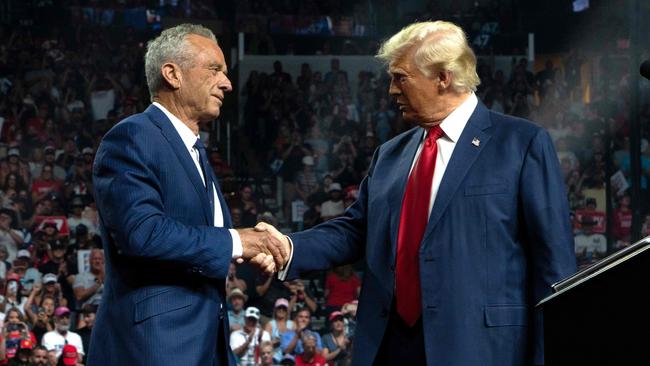
“My joining the Trump campaign will be a difficult sacrifice for my wife and children, but worthwhile if there’s even a small chance of saving these kids.”
His siblings blasted his move as “a betrayal of the values that our father and our family hold most dear”, calling his support for Mr Trump “a sad ending to a sad story”.
And Jack Schlossberg – John F Kennedy’s grandson, whose mother Caroline Kennedy is the US ambassador to Australia – added that he had “never been less surprised in my life”.
“RFK Jr is for sale, works for Trump … Kamala Harris is for the people – the easiest decision of all time just got easier,” he said.
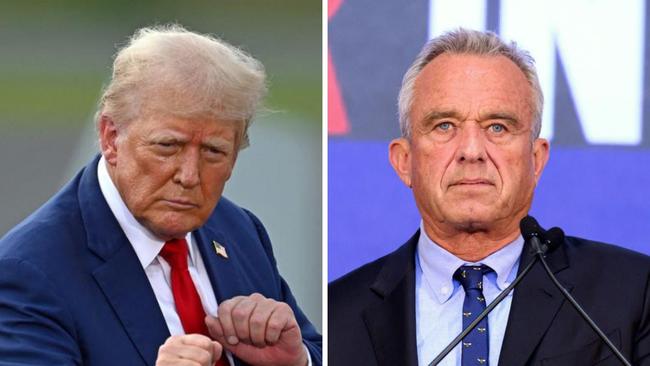
He later appeared alongside Mr Trump at a rally in Arizona, with the former president saying it was a “great honour” to have his support.
“That’s big. He’s a great guy, respected by everybody,” the Republican candidate said.
Mr Trump dodged questions about whether he had promised Mr Kennedy a role in a second Trump administration, as his new backer expressed interest in heading up the US Health Department to “fix the chronic disease crisis and reform our food production”.
Republican pollster Tony Fabrizio said Mr Kennedy’s decision was “good news for President Trump”, potentially boosting his position in key battleground states.
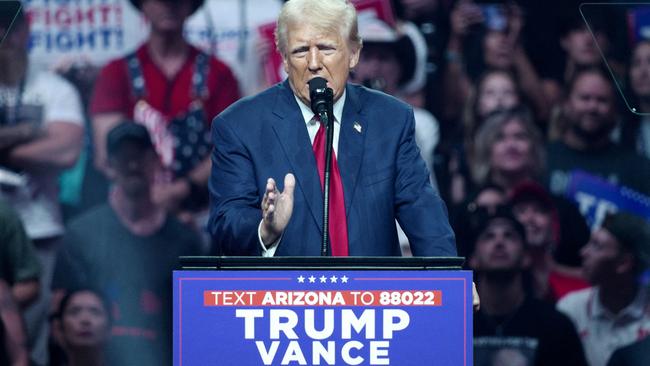
Ms Harris’s campaign chair Jen O’Malley Dillon told Mr Kennedy’s supporters that the Vice President “wants to earn your support”.
“For any American out there who is tired of Donald Trump and looking for a new way forward, ours is a campaign for you,” she said.
Democratic National Committee senior adviser Mary Beth Cahill condemned the party’s one-time presidential hopeful, saying: “The more voters learned about RFK Jr, the less they liked him … Good riddance.”
At a campaign event in Las Vegas, Mr Trump also thanked Mr Kennedy for the “very nice endorsement”.
I’ll be talking about that right after this, we’re going to be going to Arizona and talking about that,” Mr Trump said. “I want to thank Bobby, that was very nice, that was really very nice. That’s big, he’s a great guy, respected by everybody.”
Mr Kennedy said that when he entered the race, he promised to withdraw if it looked like he would become a “spoiler candidate” by siphoning away enough votes to flip results.
“By staying on the ballot in the battleground states I would likely hand over the election to the Democrats,” he said.
Mr Kennedy said he’s not fully terminating his campaign and would remain on the ballot in most states that reliably vote Democratic or Republican.
By remaining on the ballot in most states, Mr Kennedy leaves a rare yet legal path open in the case of a “contingent election”, used to elect a president if no candidate receives more than 270 votes in the electoral college.
Mr Kennedy said he connected with Mr Trump shortly after he survived an assassination attempt, and over a series of meetings discussed working together as part of a “unity ticket”.
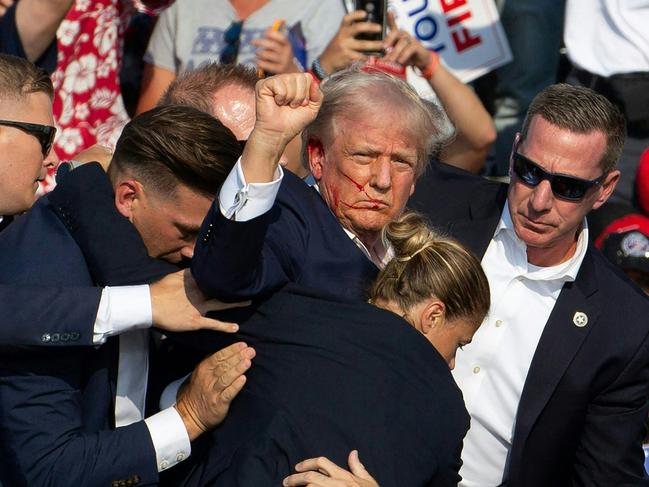
While Mr Kennedy was a “ferocious critic” of the Trump administration’s policies while in the White House, he was “surprised to discover” they were aligned on other key issues.
“Like ending the forever wars, ending the childhood disease epidemic, securing the border, protecting freedom of speech, unravelling the corporate capture of regulatory agencies, getting the US intelligence agencies out of the business of propagandising, surveilling and censoring Americans, and interfering with our elections,” he said.
While Mr Kennedy has been considering an endorsement of Mr Trump to avoid a Harris presidency, his running mate Nicole Shanahan said there was “hesitation” in joining forces over the former president’s handling of the Covid pandemic and vaccines.
“He has not apologised or publicly come out and said ‘Operation Warp Speed was my fault, it was a failure and I let it happen, I’ll never let it happen again’,” she said before Mr Kennedy’s announcement.
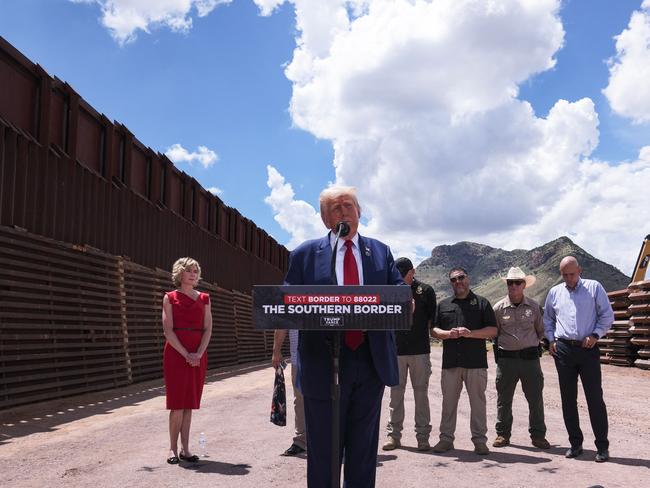
“The lockdowns, letting Fauci and Francis Collins run the show, the firing of the other folks at the NIH and individuals at the CDC who were censored.
“There was a lot that happened under Donald Trump’s watch that should not have happened and cannot happen again, and if we are going to put our bet with him, and we haven’t, we’ve not confirmed anything, we need absolute assurance.”
She added on Twitter/X that her Democrat friends were “flooding” her with “frantic calls, texts and emails” and were “terrified of the idea of our movement joining forces with Donald Trump.”
Pollsters generally agree that Mr Kennedy began pulling more voters from the Republicans after Joe Biden left the race, with the “double haters” who were turned off by the president breaking in the direction of Ms Harris.
According to the RealClearPolitics averages of all public polls, Mr Kennedy was polling between 4 per cent and 5.9 per cent in the seven battleground states that will decide the election: Georgia, North Carolina, Pennsylvania, Michigan, Wisconsin, Nevada, and Arizona.




